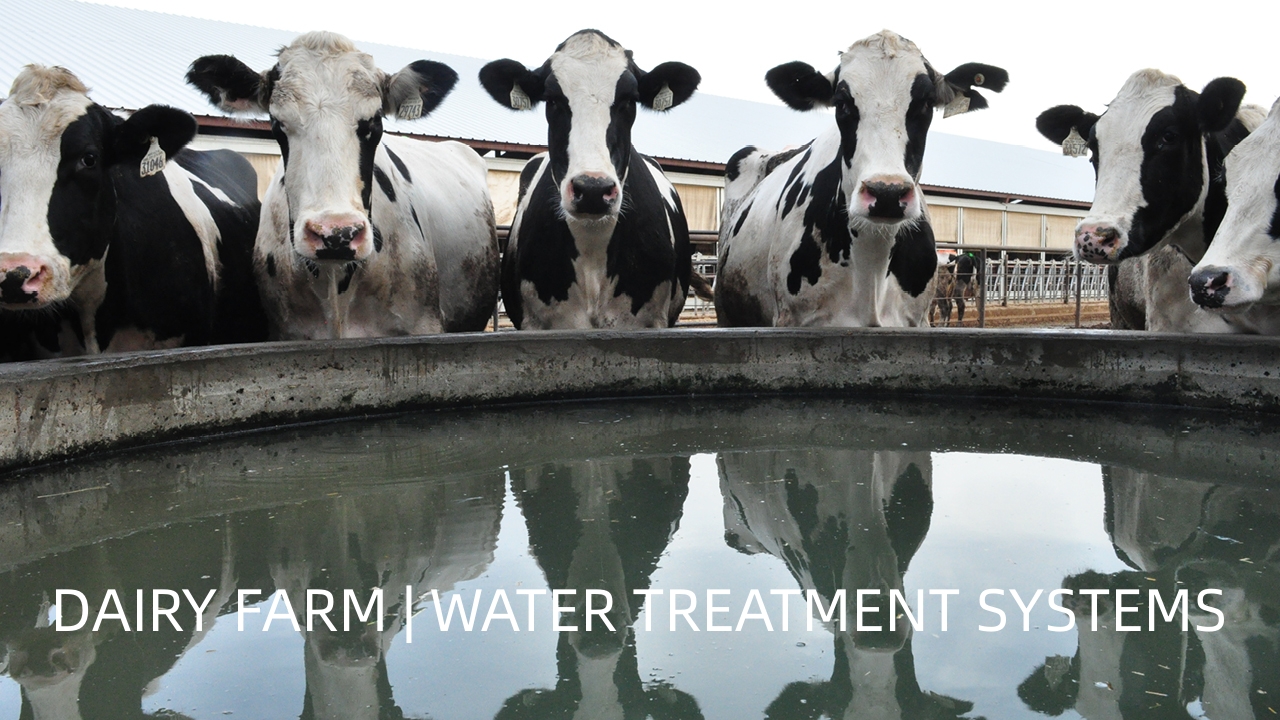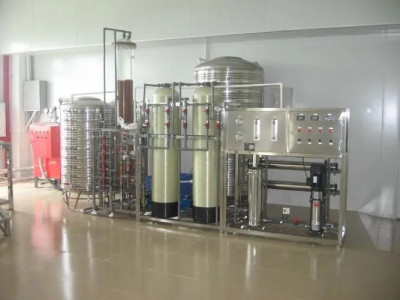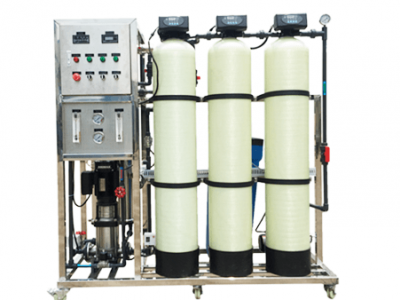Welcome to the world of dairy farming, where cows are happy and milk flows abundantly! But have you ever wondered what goes on behind the scenes to ensure that the milk you enjoy is not only delicious but also safe for consumption? One crucial aspect of dairy farming is water treatment. Yes, you heard it right – water treatment! In this article, we will dive into the fascinating process of water treatment in dairy farms.
September 6, 2023

Importance of water treatment in dairy farms
Water treatment is a crucial aspect of maintaining a healthy and productive dairy farm. As the saying goes, “you are what you eat,” but for cows, it could be modified to “you are what you drink.” Water plays a vital role in the overall well-being of cows and directly affects milk quality and safety.
In a dairy farm setting, ensuring the health and well-being of cows is of utmost importance. Cows require clean and safe water to stay hydrated, maintain proper digestion, regulate body temperature, and support overall bodily functions. Poor water quality can lead to various health issues such as dehydration, reduced feed intake, digestive problems, and even disease outbreaks among the herd. Therefore, implementing effective water treatment measures is essential to safeguarding the health of these valuable animals.
Another critical aspect of water treatment in dairy farms is maintaining milk quality and safety. Milk is a highly perishable product that can easily become contaminated if exposed to impurities in water. Bacteria and pathogens present in untreated or poorly treated water can contaminate milk during milking or when cows consume contaminated water. This contamination can lead to spoilage, reduced shelf life, increased bacterial counts, and even pose risks to consumer health. Proper water treatment helps minimize these risks by removing or reducing harmful microorganisms from the water supply.
Dairy farms often face various types of contaminants in their water sources. Bacteria and pathogens are common culprits that can cause diseases such as mastitis in cows or pose risks to human health if consumed through raw milk products. Chemical residues from cleaning products used on equipment or facilities can also find their way into the water supply, potentially affecting cow health or compromising milk quality. Additionally, sediments and organic matter may be present in surface waters used for irrigation purposes or groundwater sources with high levels of dissolved solids.
To combat these contaminants effectively, dairy farms have several options for water treatment. Filtration systems are commonly used to remove physical impurities and some microorganisms from the water. Sand filters are effective in removing sediments and larger particles, while carbon filters can remove chemical residues and organic matter, improving the taste and odor of the water.
In addition to filtration, disinfection methods are crucial for eliminating or reducing microbial contaminants. Chlorination is a widely used method that involves adding chlorine compounds to the water to kill bacteria and pathogens. UV sterilization is another effective method that uses ultraviolet light to destroy microorganisms by disrupting their DNA.
Water treatment options for dairy farms
Water treatment is a crucial aspect of maintaining the health and productivity of dairy farms. By implementing effective water treatment options, farmers can ensure the well-being of their cows and maintain the quality and safety of milk production.
One common water treatment option for dairy farms is filtration systems.
Another disinfection method gaining popularity is UV sterilization.
Filtration systems
Filtration systems play a crucial role in water treatment on dairy farms. These systems are designed to remove impurities and contaminants from the water, ensuring its quality and safety for both the cows and the milk production process. There are different types of filtration systems that can be used in dairy farms, each with its own advantages and applications.
One commonly used filtration system is sand filters. These filters consist of layers of sand that trap suspended particles and sediments present in the water. Sand filters are effective in removing larger particles, such as dirt, debris, and organic matter. They also help reduce turbidity, improving the clarity of the water. This is important as cows require clean and clear water to stay hydrated and maintain their overall health.
Another type of filtration system used in dairy farms is carbon filters. Carbon filters utilize activated carbon to remove impurities from the water. This includes chemicals, such as chlorine, pesticides, herbicides, and other organic compounds that may be present in the water supply. Carbon filters are particularly useful for removing chemical residues from cleaning products often used on dairy farms.
In addition to filtration systems, disinfection methods are also employed to further ensure water quality on dairy farms. One common method is chlorination, where chlorine is added to the water to kill bacteria and pathogens. Chlorination is an effective way to control microbial contamination in the water supply.
UV sterilization is another disinfection method used in dairy farms. Ultraviolet (UV) light is utilized to destroy microorganisms by disrupting their DNA structure. UV sterilization does not introduce any chemicals into the water and can effectively eliminate bacteria, viruses, and other pathogens.
To ensure optimal performance of filtration systems on dairy farms, it is important to follow best practices for water treatment. Regular testing and monitoring of the water quality should be conducted to identify any potential issues or changes that may affect cow health or milk production. Proper maintenance of filtration systems is also crucial to ensure their efficiency and longevity. This includes regular cleaning, replacing filters when necessary, and addressing any repairs or malfunctions promptly.
Staff training on water management protocols is essential to ensure that everyone involved in the dairy farm operations understands the importance of water treatment and follows the established procedures. This includes proper handling of chemicals, monitoring filtration systems, and implementing disinfection methods correctly.
Sand filters
Sand filters are a commonly used water treatment option in dairy farms. These filters play a crucial role in removing impurities and ensuring the quality of water used for various purposes on the farm.
The primary function of sand filters is to remove solid particles and sediment from the water. This is particularly important in a dairy farm setting, as sediments can contain harmful bacteria and pathogens that can pose a risk to both the cows and the milk they produce. By effectively removing these contaminants, sand filters help maintain a clean and safe water supply.
One of the key advantages of sand filters is their ability to handle high flow rates without sacrificing filtration efficiency. The filter media, typically made up of layers of different-sized sand particles, traps suspended solids as water passes through it. The larger particles are captured near the top layer, while smaller particles are caught deeper within the filter bed. This multi-layered filtration process ensures thorough removal of impurities.
In addition to their effectiveness in removing solid particles, sand filters also have excellent longevity and require minimal maintenance. The filter media can last for several years before needing replacement, making them a cost-effective choice for dairy farms. However, regular backwashing is necessary to prevent clogging and maintain optimal performance.
When using sand filters in a dairy farm setting, it’s essential to consider certain factors such as pre-treatment requirements and system sizing. Pre-treatment methods like settling tanks or clarifiers may be necessary to remove larger debris before water enters the filter system. Additionally, proper sizing of the sand filter system ensures adequate flow rates and efficient filtration.
Carbon filters
Carbon filters are an effective water treatment option for dairy farms. These filters play a crucial role in removing impurities and improving the overall quality of water used in various processes on the farm.
One of the main benefits of carbon filters is their ability to remove chlorine and other chemicals commonly found in water sources. Chlorine is often used as a disinfectant, but it can have negative effects on both cows and milk quality if not properly removed. Carbon filters effectively absorb chlorine, ensuring that it does not come into contact with the cows or contaminate the milk.
In addition to chlorine, carbon filters also remove other organic compounds, such as pesticides and herbicides, which may be present in the water supply. These compounds can potentially harm the health of cows and affect milk quality. By using carbon filters, dairy farms can ensure that these harmful substances are eliminated from the water before it is consumed by the animals.
Furthermore, carbon filters are highly effective at removing unpleasant odors and tastes from water. This is particularly important in dairy farms where cows rely heavily on water consumption for their hydration needs. By providing clean and odor-free water, carbon filters help to encourage cows to drink an adequate amount of water, promoting their overall health and well-being.
Another advantage of carbon filters is their long lifespan and low maintenance requirements. They are typically designed to last for a significant period before requiring replacement or regeneration. This makes them a cost-effective choice for dairy farms looking to invest in reliable water treatment solutions.
It is important to note that while carbon filters are highly effective at removing many contaminants, they may not be suitable for all types of impurities present in the water supply. Therefore, regular monitoring and testing of the treated water should be conducted to ensure its quality meets the desired standards.
Disinfection methods
Disinfection methods play a crucial role in ensuring the safety and quality of water in dairy farms. By eliminating harmful bacteria, viruses, and other pathogens, these methods help to protect both the health and well-being of cows as well as the quality and safety of milk.
One commonly used method for disinfection in dairy farms is chlorination. Chlorine is added to the water to kill or deactivate microorganisms present in the water supply. It is an effective and cost-efficient method that can provide continuous disinfection throughout the entire water system. However, it is important to carefully monitor and control chlorine levels to ensure they are within safe limits for consumption by cows.
Another increasingly popular disinfection method is UV sterilization. Ultraviolet (UV) light is used to destroy microorganisms by disrupting their DNA or RNA, preventing them from reproducing. UV sterilization does not require the use of chemicals, making it an environmentally friendly option. It also does not alter the taste or odor of water, which can be particularly important for maintaining cow’s drinking behavior.
When choosing a disinfection method for a dairy farm, it is essential to consider factors such as effectiveness, cost, ease of operation, and maintenance requirements. Both chlorination and UV sterilization have their advantages and limitations, so it is important to evaluate these factors based on specific farm needs.
It’s worth mentioning that disinfection methods should be complemented with proper filtration systems. Filtration helps remove sediments, organic matter, and other particulates that may affect the efficiency of disinfection methods or compromise water quality.
Chlorination
Chlorination is a widely used method for disinfecting water in dairy farms. It involves the addition of chlorine, either in the form of liquid or tablets, to kill bacteria and pathogens present in the water. This process helps ensure that the water used for various purposes on the farm, such as cleaning equipment and providing drinking water to cows, is safe and free from harmful microorganisms.
One of the main advantages of chlorination is its effectiveness in killing a wide range of bacteria and pathogens. Chlorine has strong antimicrobial properties and can effectively destroy harmful organisms that can cause diseases in cows or contaminate milk. By implementing chlorination as part of their water treatment process, dairy farms can significantly reduce the risk of bacterial infections and maintain a healthy environment for their animals.
Another benefit of chlorination is its residual effect. After treating the water with chlorine, a small amount remains in the system, providing ongoing protection against microbial growth. This residual effect helps prevent recontamination during storage or distribution, ensuring that the treated water remains safe until it reaches its intended use.
Chlorination is also relatively easy to implement and cost-effective compared to other disinfection methods. The equipment required for chlorination is readily available and simple to operate. Additionally, chlorine itself is affordable and widely accessible, making it a practical choice for dairy farms looking to improve their water quality.
However, it’s important to note that while chlorination effectively kills bacteria and pathogens, it may not be effective against certain types of chemical contaminants. Chlorine does not remove chemical residues from cleaning products or other agricultural chemicals that may be present in the water supply. Therefore, additional treatment methods may be necessary to address these specific contaminants.
To ensure proper chlorination, it is essential for dairy farms to regularly monitor chlorine levels in their water supply. This can be done using simple test kits or by working with a professional laboratory service. Regular testing will help determine if adequate levels of chlorine are being maintained to effectively disinfect the water.
UV sterilization
UV sterilization is a highly effective method of water treatment that is commonly used in dairy farms. It involves the use of ultraviolet (UV) light to kill or deactivate bacteria, viruses, and other microorganisms present in the water.
UV sterilization works by exposing the water to UV light at a specific wavelength (usually around 254 nanometers). This wavelength is lethal to many microorganisms as it damages their DNA and prevents them from reproducing. As a result, the treated water becomes free from harmful pathogens that can cause diseases in cows and contaminate milk.
One of the main advantages of UV sterilization is that it does not introduce any chemicals into the water. This makes it a safe and environmentally friendly option for water treatment in dairy farms. Additionally, UV sterilization does not alter the taste, odor, or color of the water, ensuring that cows will continue to drink it without any issues.
To implement UV sterilization in a dairy farm, specialized equipment known as UV disinfection units are installed in the water supply system. These units typically consist of UV lamps enclosed within quartz sleeves. The water passes through these sleeves, allowing the UV light to penetrate and effectively treat it.
It is important to note that UV sterilization does not remove particles or dissolved substances from the water. Therefore, it should be used in conjunction with other filtration methods such as sand filters or carbon filters to ensure optimal water quality.
Regular maintenance and monitoring are crucial for ensuring the effectiveness of UV sterilization systems. The intensity of the UV lamps should be checked periodically to ensure they are functioning properly. Additionally, quartz sleeves should be cleaned regularly to prevent any buildup that may reduce UV penetration.
How to Choose the Right Pure Water Treatment Equipment for Your Needs?
November 10, 2025
How to Choose the Right Pure Water Treatment Equipment for Your Needs? (by ROAGUA – Professional Water Treatment Equipment Manufacturer, China)
Turn Muddy Water into Clean Water: ROAGUA Stainless Steel Ultrafiltration Water Purifier for Africa
November 5, 2025
Clean Water for Every Village – ROAGUA Stainless Steel Ultrafiltration Water Purifier Built for Africa’s Tough Water Conditions
How Do You Select the Right 500LPH RO System?
October 14, 2025
buy right 500LPH RO System, please read this one first



